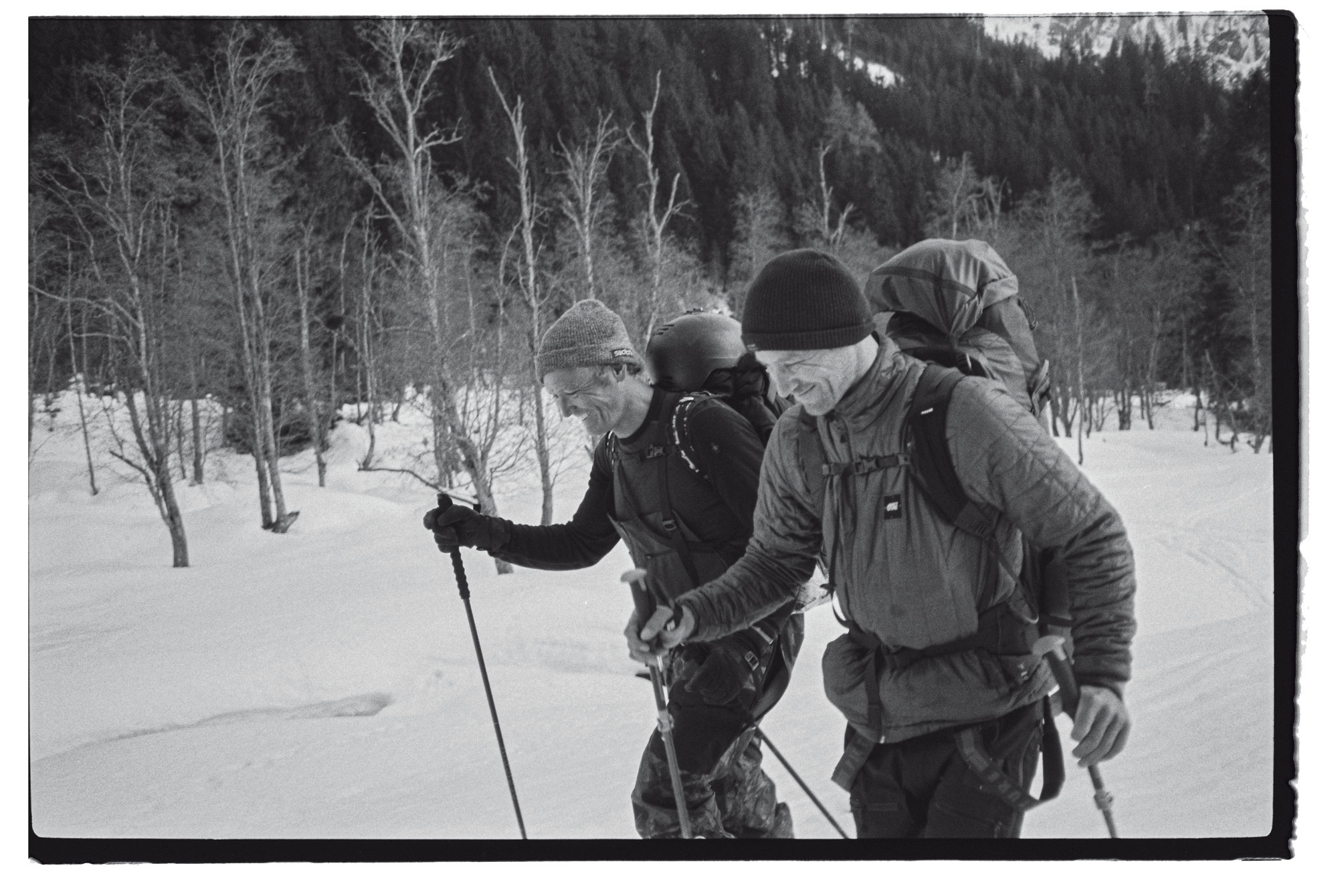By Eva Toschi

Picture’s snow film “Invisible Ground”
Picture’s snow film “Invisible Ground”
“How amazing does that feel.
Gliding, flying through deep fresh snow.
Everyone who has experienced it, will know what I mean.
When everything goes right
But what if it goes wrong?”
These are the words with which “Invisible Ground” begins, the documentary supported by Picture and Smith and created by the snowboarder and filmer Elias Elhardt which, finally I allow myself to say, speaks profoundly about the choices that people, like Xavier De Le Rue and Elias himself, decide to out of mountain life, and of the risk associated with it, their own lives. And it is precisely this life on the edge, both emotionally and materially, and full of contradictions, that Elias and Xavier discuss in an honest and unsettling conversation.
In a world where only the “playful” side of skiing on powder is often showcased, where exposing yourself to risk to bring home some cool shots is normalized, indeed, where risk is not even talked about because, otherwise, how can you sell this discipline to consumers, hearing two pro riders talking about the whole background is disarming. And today it was more than necessary, I would add.
Elias and Xavier first talk about their personal approach to the discipline: the first increasingly focused on the playful side, the second instead fascinated by the possibility of mixing snowboarding with mountaineering. We talked about beauty, the search for beauty in exposing ourselves to raw elements. For Xavier, it is precisely this search for insecurity, away from the comforts of modern life, which leads him to reconnect with his own animal being. And it is precisely this feeling of precariousness, where in a certain sense one has to fight for one’s life, the reason that prompted him to do what he has done over the years. To feel animal and consequently feel free.
After sharing their freeriding visions, Elias and Xavier begin to take the conversation to another level: they go deep inside and start talking about experiences that you tend to cancel rather than share. We talk about death, face-to-face death, digging under an avalanche and pulling out the body of a friend, or a 15-year-old boy.
“When you’re fighting for your life, freeriding seems so useless.”
In addition to the undeniable trauma resulting from these experiences, that makes you reflect on the role and responsibility that pro riders have in communicating this extreme lifestyle that appears so beautiful from the outside. And it is precisely for this reason that storytelling are needed, such as this proposal in Invisible Ground, which highlight the other side of the coin. In talking about avalanche accidents, Xavier’s accident is mentioned: he didn’t lose his life by a miracle.
At the time, he already had a three-year-old daughter and yet from the hospital window he found himself, after a very short time, contemplating the snow-capped mountains feeling he wanted to be there, despite everything. A crazy thing, if you think that right after that accident Xavier pushed hard in the mountains.
Different has been however the reaction he had to the accident in which his friend lost his life, which had a different impact on him because, as the documentary says, the outcome was also different.
However, it is evident that despite the most painful events, those who love the mountains, those who feed themselves on this (in every sense) the question that arises, sometimes even lying to themselves, is how to be able to continue doing what they are passionate about without hurting the people close to you. Because at the end of the day it’s not big business that matters but relationships with others, which are also essential nourishment for a life worth living.
So what is the way, the recipe, if one exists, to live this useless and at the same time necessary discipline, in the healthiest way possible?
Go to the mountains with humility, living experiences that make us understand how fragile we are rather than how cool and capable of great feats we are.
Reconnecting to our more animal side, as Xavier says, because in this way we become predators, of our ego, and thus we become prey at the same time. Because deep down, we are only vulnerable beings, capable of great things, but at the same time small, fragile, limited. And perhaps it is thanks to embracing our fragility that we can do something good. In this life or in the next one.